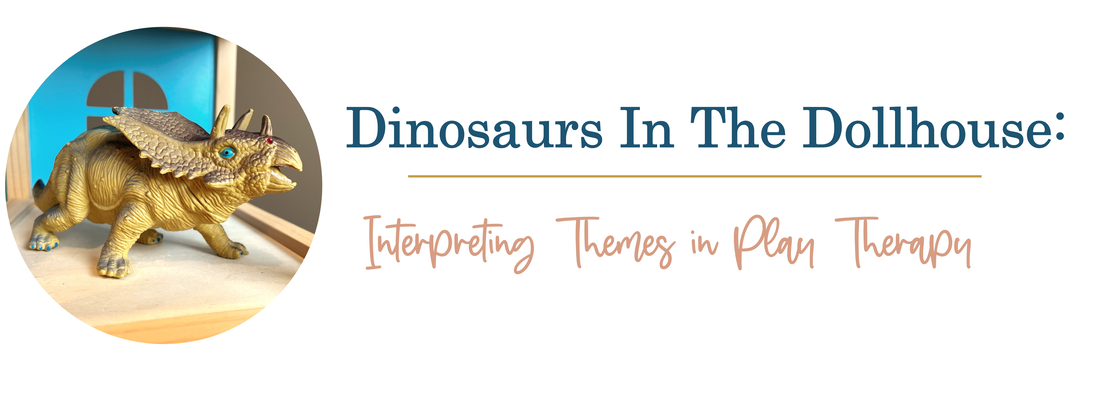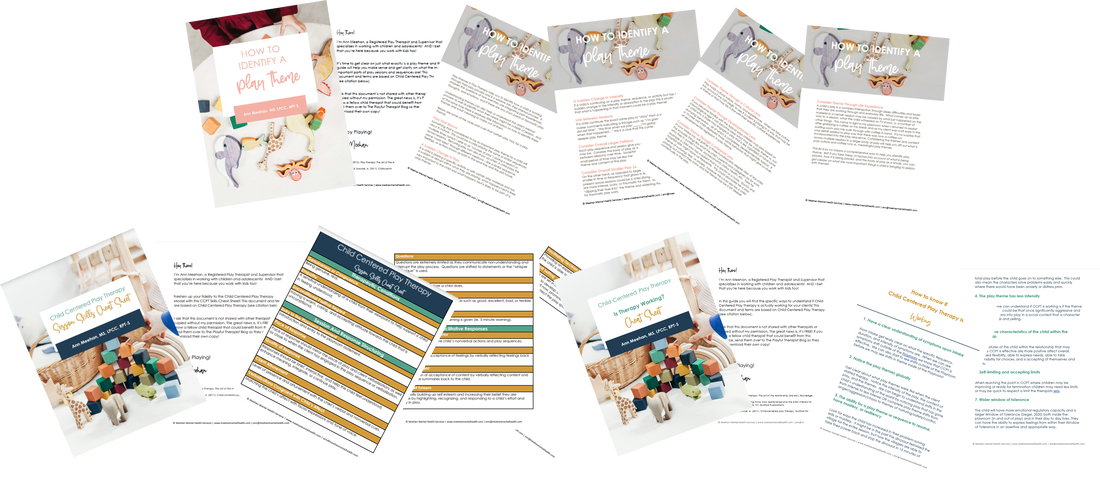|
What does it all mean?
You have a kid on your caseload that has been playing a battle where nobody ever seems to win for the last five sessions. Another client pushes sand around in the tray with construction equipment but never says a word. You have another client who wants to set up the dollhouse but never really gets into any “real play”. Some sessions have a lot of movement and battles, sometimes you get put in handcuffs or time out, and yet others you are preparing 10 course meals. Sometimes you feel like you are just acting out the latest Disney movie. You're left feeling overwhelmed and not sure how to put together the pieces of what happened during these sessions and why it is meaningful for therapeutic growth, progress, and healing. Your not sure how to figure out what children are trying to communicate and express during play. How does playing in the kitchen link to a child's symptoms of difficulty with regulation and outbursts? Am I even doing anything here? You’re left feeling ineffective and like you're “just playing” with kids. You’re not sure how to tell if what you are doing is really helping and if the kids in your playroom are making progress. Parents are wanting to know how your sessions are going and how this “play therapy thing” is even helping. They might think that their child needs a different type of therapy where they can “talk it out”. You meet with parents who want concrete results and you’re not sure how to explain how playing with dinosaurs or in the kitchen is helping process and resolve the very big difficulties like anger, anxiety, and trauma that brought them into the playroom in the first place. You need a road map. The specific steps to give you confidence, clarity, and understanding of how to identify a play theme, what the theme actually means, and how to use play themes to help with healing and growth, to assess progress, and bridge the gap between the playroom and the real world. |
|
What if you could feel confident in understanding and interpretation of play themes? What would it be like for you to leave your play therapy sessions feeling like you had the most effective facilitative responses in session because you truly understood what was happening in the play? What would it be like to have a clear understanding of what the child was attempting to communicate during the session and know the specific play themes they were expressing? How would that impact your confidence with children and parents? Confidence in yourself as a therapist? Belief that you are doing amazing work and the power of nondirective play therapy as an effective modality to heal children? And what if a deeper understanding of play themes was the key to unlocking your confidence as a therapist? Now imagine this…
Poof - gone are the days that you're left scratching your head after sessions, wondering what the heck just happened and what it all means. This course Dinosaurs In The Dollhouse: Interpreting Themes in Play Therapy holds your hand and creates a concrete roadmap for the specific steps to identify and interpret play themes and how to use this knowledge to deepen the play therapy process. |
|
Inside the course you will learn:
|
|
You also won’t walk away empty handed. Inside the course you get multiple handouts and downloads including:
|
|
Want to learn more? Check out the details below! CE Information: This course is approved for 3.5 APT Non-Contact hours by Meehan Mental Health Services (APT Approved Provider 19-580). Learning Objectives:
Course Format: Train when it works for you! This course is a pre-recorded online self paced course where the modules are broken up into smaller digestible chunks that can be completed during a client cancellation, on the weekends, early in the morning, late at night - whenever! You can login at your own pace, re-watch content, and have unlimited access to the course. This course is designated "Non-Contact" by the Association for Play Therapy. Who should attend: This program is a beginning to intermediate course for any Play Therapist who wants to increase confidence in theme interpretation in non-directive play therapy. Cost: $87.00 |
Course Presenter
|
Hi! I'm Ann - or formally Ann Meehan, MS, LPCC, RPT-S, EMDRIA Consultant. I work as a private practice therapist in the north woods of Minnesota and specialize in working with young people ages 3 and up using Play Therapy and EMDR. I have a library of trainings and run The Playful Therapist Blog. Overall I am passionate about helping other therapists grow into competent and confident Play Therapists, trauma therapists, and child and adolescent therapists. |
Please email [email protected] with questions or concerns.
Play Therapy Credit may not be awarded to non-mental health professionals. There are no refunds for this recorded course.
See Meehan Mental Health Services full policies and procedures for online and in person trainings here.

























